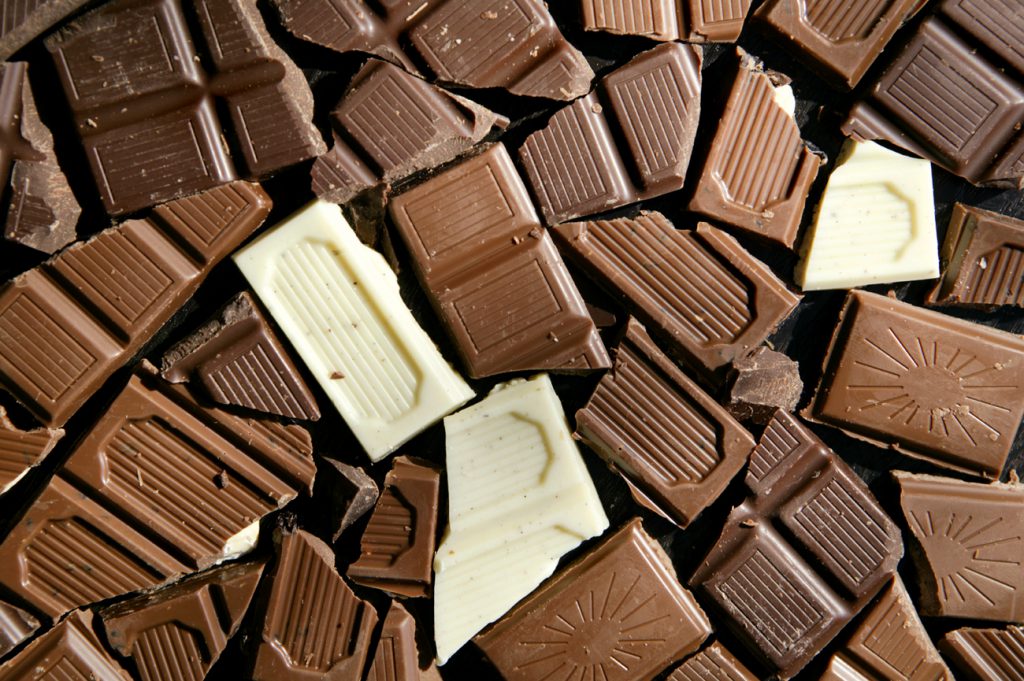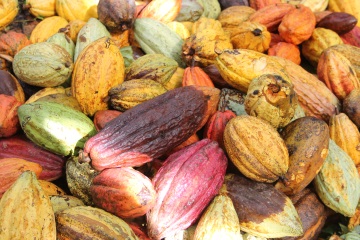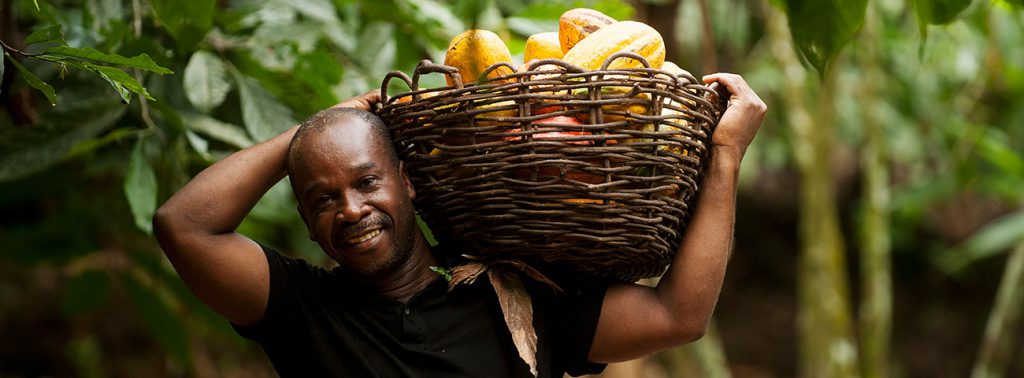Around six million people depend on farming cocoa for their livelihoods around the world, with over 60% of the world’s cocoa sourced from Côte d’Ivoire and Ghana alone.
What cocoa farming means
Despite the world’s love for chocolate, it is a precarious way of making a living. Although there is a high demand for cocoa, the global price for cocoa has fluctuated wildly in recent decades as a result of weather events and politic upheaval in Côte d’Ivoire, exacerbated by speculators betting on cocoa futures markets. Between 2016 and 2017 global cocoa prices dropped by by more than a third. Such volatility in prices makes it impossible for cocoa farmers to know how much they would be paid for their cocoa beans in a given year, let alone being able to plan for the future.
Most producers have small farms and they also face significant problems with the crops, including Black Pod disease which globally is killing one in 10 cocoa trees and causing a drop in yield of 20-30%. The general age of many cocoa trees is also an issue and means small-scale farmers are producing less cocoa year-on-year. The average age of a cocoa farmer is now over 50 because the younger generation cannot be attracted to cocoa farming because of the poor returns. Read more about the challenges for small farmers growing cocoa (pdf).
How is Fairtrade making things better?
Fairtrade aims to make cocoa farming more sustainable so farmers can better provide for themselves and their families. In 2020, 394 farmer organisations, representing over 440,000 small-scale farmers, held a certificate to produce and sell Fairtrade cocoa.
Sales volumes of Fairtrade cocoa sold in 2020 were over 175,400 MT. These sales include a Fairtrade Premium of $240 per tonne for farmers to invest in their businesses or local community. In 2020, cocoa producer organisations received just over £33 millions in Premiums. The Premium is invested in various projects and programmes to improve productivity and quality as well as community programmes such as schools, medical centres and clean running water.
Farmers in Fairtrade certified Kuapa Kokoo co-operative in Ghana have spent their premium on building wells for drinking water, building public toilets, and a mobile clinic to visit member’s villages. They have also invested in training in leadership and management and set up other ways for women especially to earn more money, making soap and palm oil, milling corn and breeding snails.
In addition to the Premium, Fairtrade provides essential training and support to farmer organisations to help them become successful business organisations. In Côte d’Ivoire, Fairtrade undertook training workshops so farmers know how to negotiate their contracts with traders and get a better deal for their members.
Comfort Kwaasibea, a cocoa farmer from the Kuapa Kokoo co-operative, says: ‘Fairtrade is a good thing. Things you take for granted may be hard to come by in Ghana. Fairtrade is good to the farmer and makes us happy. We would like to sell more cocoa to Fairtrade so more farmers can taste a better life.’
Fairtrade also recognises the need to innovate and create more options to allow farmers to sell more of their cocoa on Fairtrade terms. In January 2014, Fairtrade launched new sourcing opportunities for cocoa under the Fairtrade Sourcing Program for Cocoa and by the start of 2016 eighteen companies had begun to source cocoa through this Program. Fortin Bley, a Fairtrade cocoa farmer in Côte d’Ivoire explains what difference the programme will make.
Watch Fairtrade Sourcing Programs interview with Fortin Bley.
Next steps

Where to buy Fairtrade chocolate
Find out where you can buy Fairtrade chocolate and make a difference to the lives of cocoa farmers and their families around the world.

10 facts about Fairtrade chocolate
Farmers from the Fairtrade-certified Kuapa Kokoo cooperative in Ghana own 44% of the Divine chocolate company.
